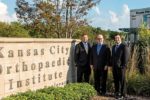Martinez Vascular Institute and Wellness, LLC

Story by Jeanie Edgmon
The Truth About Median Arcuate Ligament Syndrome (MALS)
Truth is a foundational building block that underpins our society and drives us to seek answers to complex problems. Without truth, we cannot have trust, and without trust, we cannot have hope, and without hope, we do not have a functioning society. That’s why we must make finding the truth a priority.
But what does it mean to seek the truth? It means being willing to challenge our own beliefs and biases and examine evidence and arguments with an open mind. It means being willing to admit when we are wrong, and to change our beliefs in light of new information. It means valuing honesty and accuracy, even when it is difficult or inconvenient. Truth is a hard-won and humbling process.
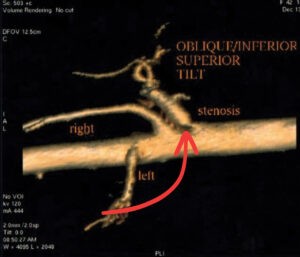 This is especially true when it comes to an uncommon, and commonly misdiagnosed neurovascular condition called Median Arcuate Ligament Syndrome or MALS.
This is especially true when it comes to an uncommon, and commonly misdiagnosed neurovascular condition called Median Arcuate Ligament Syndrome or MALS.
According to the National Organization of Rare Disorders (NORD):
“The median arcuate ligament syndrome (MALS) is a cause of chronic abdominal pain affecting both children and adults alike. Chronic abdominal pain is a very common condition that can have significant negative, long-term psychosocial consequences, including increased risk for anxiety, school and work absences, poor functional capacity, and a poor quality of life. While the exact cause of the pain is unknown, compression of the celiac artery and/or the celiac plexus nerves by the diaphragm can result in pain that is worsened with eating or sometimes with exercise. Other symptoms include nausea and weight loss. In some patients the symptoms can be devastating and can lead to erroneous diagnoses of an eating disorder, psychiatric conditions, or functional abdominal pain (e.g., irritable bowel syndrome, abdominal migraine). The diagnosis is made based on a combination of the clinical symptoms and radiology imaging. There is a surgical procedure that can be performed.”
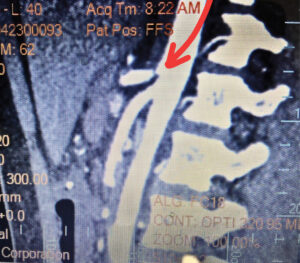
MALS, however, may not be as “rare” as we think. There has been astoundingly little research in this area. Patients are commonly misdiagnosed because imaging does not “prove” it to be true and patients can be asymptomatic or have long excruciatingly painful episodes. In some cases, it can be fatal.
Jane M. Gerber shared the difficult journey to gaining a diagnosis and care for her husband Eric in her book Cry Until You Laugh.
“Contrary to what some people say, MALS is not a rare condition. It is a condition that is rarely diagnosed. According to the National Organization for Rare Disorders (NORD), a rare condition is one which has 200,000 or fewer cases. At the writing of my book in 2021, there were between 500,000 and 1.1 million cases of MALS worldwide. With so few doctors that are willing to do anything concerning MALS, it will continue to be rarely diagnosed and people will continue to suffer needlessly,” she contended.
In discussing the quest for care, she added “It took 17 months, 1 week and 10 days to get to surgery. He saw 36 doctors and physician assistants (some many times). He saw a mental health therapist, physical therapist, and acupuncturist. He was in the ER 11 times, and inpatient in the hospital 8 times totaling 30 days. He had 413 labs, tests, x-rays, and procedures. He had 2 surgeries that did not help. He lost 98 pounds because he was unable to eat, drink, or keep anything down in those rare moments he could eat. He vomited for hours on end and because of that, lost all of his teeth. We traveled 11,007 miles for out-of-town medical visits. Medical bills were $741,916.19 (not including dental) up until about fourteen months after surgery. This is not rare for those suffering from MALS.”
One of the most difficult problems is finding a surgeon having extensive experience in dealing with MALS, according to Audrey Vernick Director of Patient and Family Advocacy Pediatric Epilepsy Surgery Alliance, whose own son developed MALS at age 12.
“After working with half a dozen medical centers across the U.S. for over a year, we could not find anyone to treat our son. We were lucky to find Dr. Martinez, as Sam was desperate due to his ongoing suffering and the dismissal of his condition by the medical establishment. Dr. Martinez performed surgery on Sam in 2019, and his symptoms resolved within a few months. He now lives a completely normal life. I share his story in the hopes that I might be able to save a life – MALS patients die each year from suicide, malnutrition, organ failure, a ruptured artery, and other causes.”
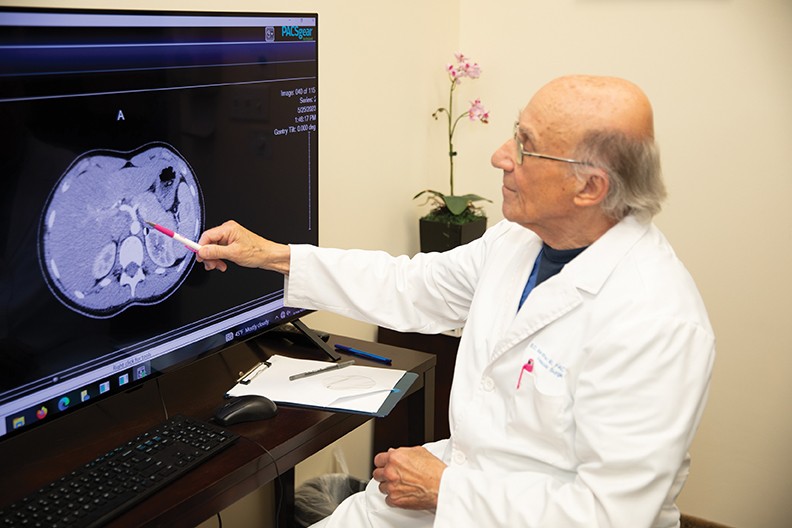
CTA’s showing celiac artery compression by the arcuate ligament
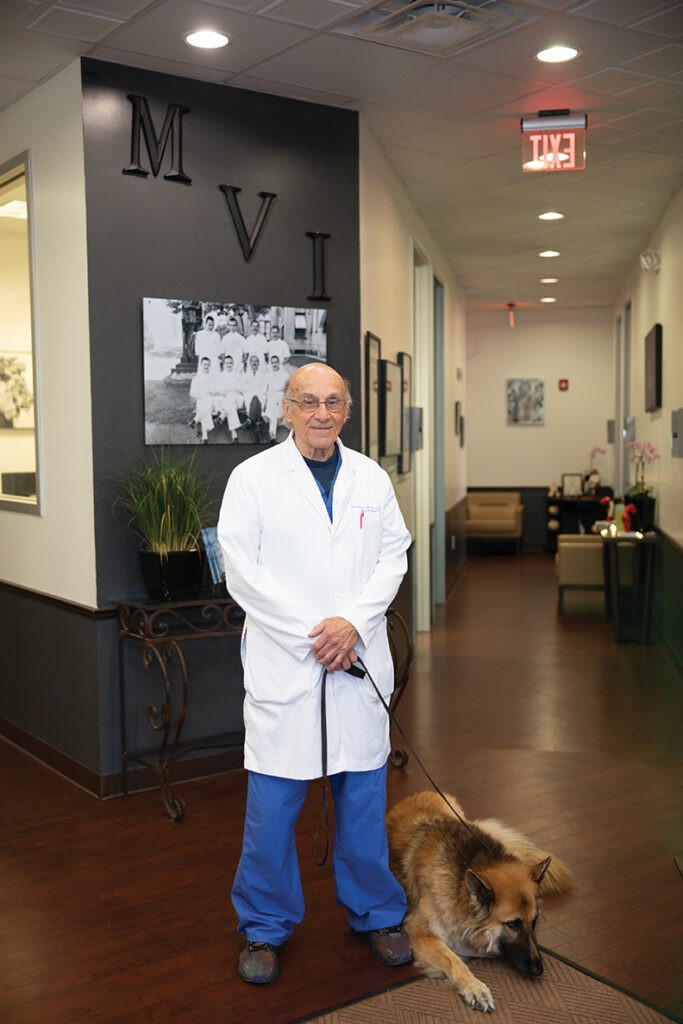
Dr. Martinez with co-pilot “Beta”
Martinez Vascular Institute and Wellness LLC
Recognized as a pioneering leader in the treatment of MALS, Bernardo D. Martinez, MD, FACS, HeCBC recently relocated from Ohio to Kansas City, bringing hope to many patients.
Dr. Martinez is a seasoned vascular surgeon and pioneering robotic surgeon. He specializes in disorders relating to the arterial, venous, and lymphatic systems, and is an expert at wound healing. He additionally focuses on abdominal aortic robotic-assisted surgery and robotic surgery for treating the disabling thoracic outlet syndrome. He manages these conditions by medical therapy, minimally invasive catheter procedures, and surgical reconstruction. Dr. Martinez treats a range of health problems, from spider and varicose veins to life-threatening aneurysms, and Neurovascular Compression Syndromes, and helps patients manage chronic conditions throughout their lives. Dr. Martinez does not do MALS surgery robotically for very specific reasons.
The doctor’s acclaimed medical career began after he earned his medical degree from the National University of Cuyo in Argentina in 1970. He then went on to perform his residency in general surgery at SUNY Buffalo graduating 1975, and his residency in vascular surgery at Cleveland Clinic graduating 1977.
Dedicated to surgical excellence Dr. Martinez is board-certified in vascular surgery by the American Board of Surgery (ABS). A fellow of the American College of Surgeons (FACS), he is a member of the Society of Vascular Surgery and the Midwestern Vascular Society. Dr. Martinez received the prestigious award, HeCBC, for vascular surgery excellence from Brazil as a recognized leader, contributor, and humanitarian to vascular surgery.
He completed a fellowship at Stanford University as part of the pinacol pioneer team that developed clinical research with two competing robotic systems. Ultimately the DaVinci Robotic System took the lead and revolutionized surgical operating technology in the appropriate clinical circumstances and is used worldwide in healthcare facilities. There he worked alongside Dr. Thomas Fogarty and Dr. Christopher Zarins who both are icon’s in the field of vascular surgery. Dr. Martinez wrote the surgical technical protocol for surgeons to train and educate themselves using the DaVinci Robotic System. He traveled the world training and educating surgeons in various subspecialties; over 130 presentations and has taught at the prestigious Yale University for the Department of Surgery School of Medicine for Advanced Minimally Invasive Surgery Program.
An innovator, Dr. Martinez designed the “First Rib” Set which is distributed by Kapp Surgical Inc. The set was a manifestation of Dr. Martinez’s when operating on Thoracic Outlet Syndrome patients.
Dr. Martinez has dedicated a 30-year focus to neurovascular compression syndromes in his Madre of complex vascular technical specialties, with patients worldwide seeking his expertise.
Unfortunately, there are very few who have this experience which means many patients continue to be misdiagnosed or go without proper care.
Steven B. Deitch, MD, whose daughter has been diagnosed with MALS, shares the dire nature of this problem.
“I have an Excel spreadsheet consisting of nearly 200 surgeon names from around the world who try to help patients with MALS. As a physician myself of 20+ years, I have spoken with all of them. Several of the surgeons have diagnosed Lily with MALS but declined to operate on her because of the complexity of Lily’s surgery. In fact, several of those surgeons recommended that I speak with Dr. Martinez, whom they felt does have the expertise required for such a surgery. Without intervention, Lily will most certainly pass away.”
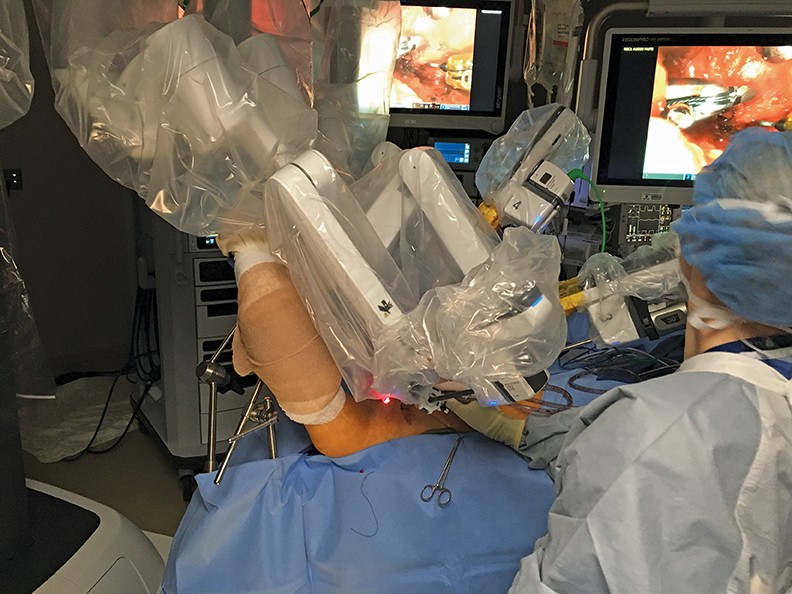
Dr. Martinez TOS Surgery Robotic
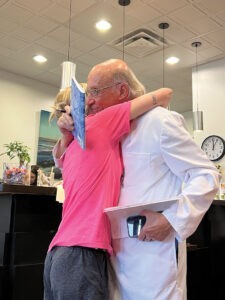
Patient that had Recurrent MALS surgery now at her follow-up
Patient Support for MALS
MALS and other compression syndromes are complex, and little is known about them. In these instances, seeking the truth about a condition requires far more than the reliance on current available knowledge. Vernick offers some practical wisdom.
“I’d advise all medical professionals to do two things: First, listen closely to your patients, especially the mothers. Moms know their kids. While doctors may have devoted their lives to knowledge about the human body, mothers have dedicated their lives to becoming experts in one human. Don’t waste that resource.
Second, use complex cases as an opportunity to learn. Learn about rare conditions, don’t dismiss them out of hand. Those who work with patients who have abdominal pain should know about the various multiple compression syndromes (MALS is just one!). Learn to trust your patients when they explain their pain. Follow their lead, even if it seems like you are following breadcrumbs.
Don’t rely on what you think you know. Tell your patients: I see you, and I believe you. Then walk the path with them.”
JOIN – “The MALS Connection”, A talk for MALS patients; to share and socialize. Non-physician centered, 1 hour Zoom call.
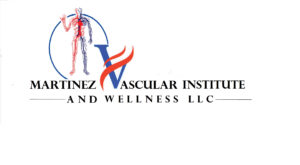
For More Information on MALS, Dr. Martinez, or to schedule an appointment, please call (913) 912-3624
11025 Metcalf Ave, Overland Park, KS 66210

